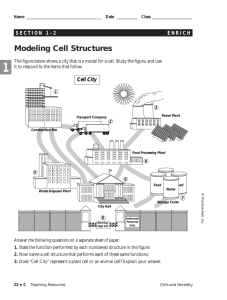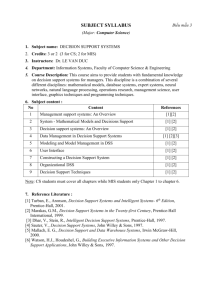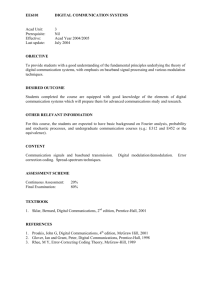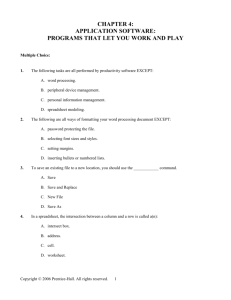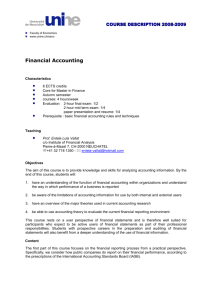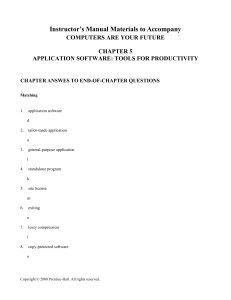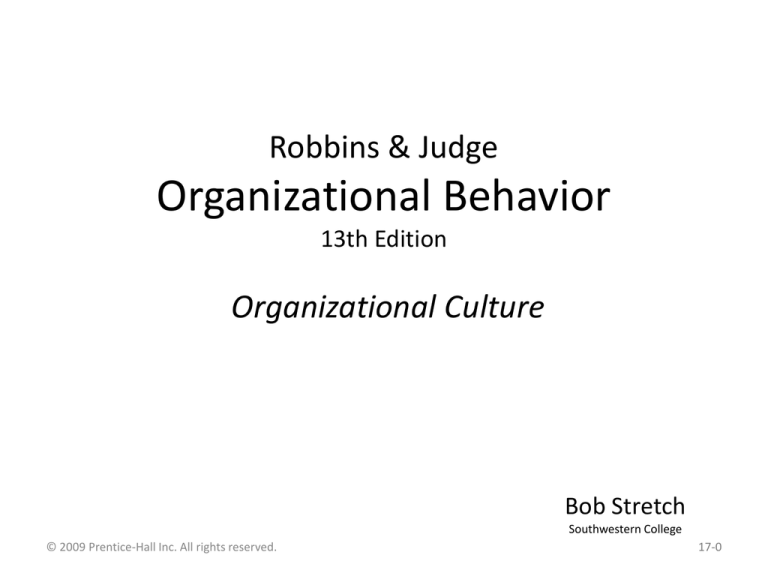
Robbins & Judge
Organizational Behavior
13th Edition
Organizational Culture
Bob Stretch
Southwestern College
© 2009 Prentice-Hall Inc. All rights reserved.
17-0
Organizational Culture
• Organizational Culture
– A common perception held by the organization’s
members; a system of shared meaning
© 2009 Prentice-Hall Inc. All rights reserved.
17-1
Seven primary characteristics:
1. Innovation and risk taking
2. Attention to detail
3. Outcome orientation
4. People orientation
5. Team orientation
6. Stability
© 2009 Prentice-Hall Inc. All rights reserved.
17-2
What Do Cultures Do?
• Culture’s Functions
1. Defines the boundary between one organization
and others
2. Conveys a sense of identity for its members
3. Enhances the stability of the social system
© 2009 Prentice-Hall Inc. All rights reserved.
17-3
Keeping Culture Alive
• Selection
– Concerned with how well the candidates will fit into
the organization
– Provides information to candidates about the
organization
• Top Management
– Senior executives help establish behavioral norms that
are adopted by the organization
• Socialization
– The process that helps new employees adapt to the
organization’s culture
© 2009 Prentice-Hall Inc. All rights reserved.
17-4
Socialization Program Options
• Choose the appropriate alternatives:
–
–
–
–
–
Formal versus Informal
Individual versus Collective
Fixed versus Variable
Serial versus Random
Investiture versus Divestiture
• Socialization Outcomes:
– Higher productivity
– Greater commitment
– Lower turnover
Exhibit 17-3
© 2009 Prentice-Hall Inc. All rights reserved.
17-5
Creating an Ethical Organizational Culture
• Characteristics of Organizations that Develop High
Ethical Standards
– High tolerance for risk
– Focus on means as well as outcomes
• Managerial Practices Promoting an Ethical Culture
–
–
–
–
Being a visible role model
Providing ethical training
Rewarding ethical acts and punishing unethical ones
Providing protective mechanisms
© 2009 Prentice-Hall Inc. All rights reserved.
17-6
Creating a Positive Organizational
Culture
• Positive Organizational Culture
– A culture that:
• Builds on employee strengths
– Focus is on discovering, sharing, and building on the strengths of
individual employees
• Rewards more than it punishes
• Emphasizes individual vitality and growth
– Helping employees learn and grow in their jobs and careers
© 2009 Prentice-Hall Inc. All rights reserved.
17-7
Spirituality and Organizational Culture
• Workplace Spirituality
– The recognition that people have an inner life that
nourishes and is nourished by meaningful work
that takes place in the context of the community
• People seek to find meaning and purpose in
their work.
© 2009 Prentice-Hall Inc. All rights reserved.
17-8
Why Spirituality Now?
– Job demands have made the workplace dominant in many
people’s lives, yet they continue to question the meaning
of work.
– The desire to integrate personal life values with one’s
professional life.
© 2009 Prentice-Hall Inc. All rights reserved.
17-9
Characteristics of a Spiritual
Organization
• Concerned with helping people develop and
reach their full potential
• Directly addresses problems created by
work/life conflicts
• Four characteristics of spiritual organizations:
1.
2.
3.
4.
Strong sense of purpose
Trust and respect
Humanistic work practices
Toleration of employee expression
© 2009 Prentice-Hall Inc. All rights reserved.
17-10
Criticisms of Spirituality
• What is the scientific foundation?
– It is still pending: needs more research
© 2009 Prentice-Hall Inc. All rights reserved.
17-11
Global Implications
• Organization cultures, while strong, can’t
ignore local culture
• Managers should be more culturally sensitive
by:
– Speaking slowly and in a low tone
– Listening more
– Avoiding discussions of religion or politics
• All global firms need to be more culturally
sensitive
© 2009 Prentice-Hall Inc. All rights reserved.
17-12
Summary and Managerial Implications
• Strong cultures are difficult for managers to change
– In the short run, strong cultures should be considered fixed
• Selecting new hires that fit well in the organizational
culture is critical for motivation, job satisfaction,
commitment, and turnover
• Socialization into the corporate culture is important
• As a manager, your actions as a role model help create
the cultural values of ethics, spirituality, and a positive
culture
© 2009 Prentice-Hall Inc. All rights reserved.
17-13

